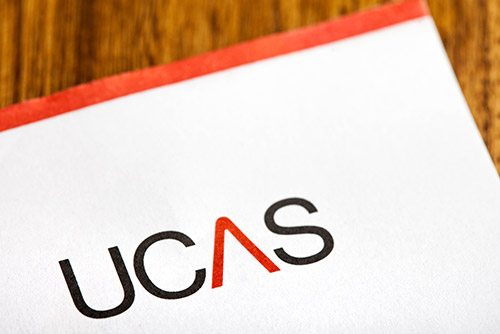
Pearson BTEC HND in Music (General)
This course has been designed to meet the growing demand for expertise in the areas of music and music technology and can lead to careers in the music industry.
Available Sessions
We have 1 sessions available for application on this course in Bangor.
The course will be delivered in the purpose made building at the Bangor campus of the college and includes facilities such as state of the art recording studios and music rehearsal rooms as well as bespoke performance spaces and high-end computer labs.
In addition to expert tuition from staff, key industry figures will offer advice both on campus and site specific, for example at a recording studio.
You will undertake several projects during your studies to give experiences of delivering industry realistic situations and equip you with employable skills.
Some of them are: concert production events, musical theatre, site specific experimental composition and original music album.
Music Production Pathway Year 1 Modules (Level 4):
Creative Software Techniques - This unit explores the creative possibilities within different DAWs. It assumes a basic level of knowledge but will build on this in areas such as MIDI sequencing and virtual instruments, audio recording and editing, software synths and ‘mixing within the box’ using software mixers.
Marketing and Promotion for Musicians - This unit will provide you with knowledge that will form a ‘toolkit’ of information about freelancing and marketing activities that you can use to further your career in the music industry.
Media Composition - This unit introduces the skills needed to compose for media and the moving image within a framework of current studio and industry practice.
Performance - This unit explores the world of live music performance and common industry practices associated with it.
The Music Industry - This unit will introduce you to the structure of the industry, focusing on revenue flows, employment opportunities, business activities and growth potential.
Professional Development - You will explore the many potential avenues of employment that relate to your specialism, build an awareness of how to present yourself to the market place and embark on the journey of professional development.
Recording Technology - This unit will provide you with knowledge of the techniques used by sound engineers and music producers when using technology to record audio sources.
Live Sound Techniques - The unit will provide knowledge of the practicalities involved in setting up and operating a sound reinforcement system for live music.
Music Production Pathway Year 2 Modules (Level 5):
Creative Portfolio - This unit provides you with an opportunity to create a unique portfolio of work relating to launching a product in your chosen field – such as a record label, a service, or a cutting-edge piece of software.
Creative Research Project - This core unit will equip you with core research skills, alongside learning qualitative and quantitative research methods, you will have the opportunity to apply these methods in the completion of a mini dissertation.
Advanced Performance Skills - This unit explores the finer points of live performance with a focus on greater control and manipulation of musical ideas throughout the creative process.
Advanced Music Production - This unit explores the finer points of music production, with a focus on greater control and manipulation of material throughout the creative process.
Advanced Sound Engineering - The aim of this unit is to develop the skill set in planning, setting up, problem solving and delivery capabilities of the sound engineer, to produce two high-quality productions in contrasting situations and environments.
Experimental Composition - This unit will provide you with the knowledge and understanding of the techniques used by cutting edge music creators to devise, record and perform new material.
Advanced Composition using Technology - This unit will provide you with an understanding of the skills practiced by music technologists when using live techniques in the development of interactive musical performances.
The general entry requirements below identify the minimum qualifications needed to apply for the programme. Other qualifications will be considered on an individual basis on application. You are required to upload a copy of your qualification certificates to show how you meet the entry requirements for the programme prior to enrolment. Applications will also require successful completion of the admissions process.
GCSE/ Level 2 Requirements
- GCSE grade C/4 in English Language, or Level 2 Certificate in Essential Skills Communication, or equivalent in an approved alternative qualification
AND
- GCSE grade C/4 in Mathematics, or Level 2 Certificate in Essential Skills Application of Number, or equivalent in an approved alternative qualification
AND
- Passes in 4 different subjects (can include English Language and Mathematics and as above), with 1 at GCE Advanced (A) level (grades A-E), and 3 at GCSE level (grades A*-C*/9-4), or equivalent in an approved alternative qualification.
Course Entry Requirements
A minimum of 32 UCAS tariff points including:
- GCE A level (A2): Typical grade profile C in a relevant subject
OR
- Pearson BTEC Level 3 Diploma in Music with overall award profile PP or above
OR
- Access Diploma in Foundation Studies with overall average of 45%
OR
- An equivalent in an approved alternative qualification
AND
- Successful outcome at audition and interview. Production pathway applicants will be asked to provide a recording portfolio and/or electronic music composition. The outcomes of which, along with the required grades, will determine the successful entry to this programme.
Accreditation of Prior Learning
Alternatively, you can provide evidence of your ability to undertake the programme by meeting the requirements for the Accreditation of Prior Learning (APL) process, either through Accredited Prior Certificated Learning (APCL) or Accredited Prior Experiential Learning (APEL). Further details on APL can be found in the HE Admissions Process section of our website and the HE Accreditation of Prior Learning SOP.
International Students English Language Requirements
International applicants, from Non-Native English speaking countries, must have evidence of English Language Level B2 on the Common European Framework of Reference for Languages:
- IELTS 6.0 (Academic) (minimum of 5.5 in all skills)
- PTE Academic 51 (minimum of 46 in each part)
- Or equivalent UKVI-approved English Language Test
For further information please contact our International Department at international@serc.ac.uk
Year 1
Mandatory Units
- U1: The Music Industry
- U2: Marketing and Promotion for Musicians
- U3: Professional Development
Production based Units
- U13: Recording Technology
- U20: Live Sound Techniques
Performance based Unit
- U23: Performance
Mixed Units
- U14: Creative Software Techniques
- U29: Media Composition
Year 2
Mandatory Unit
- U31: Creative Research Project (double value)
Production Units
- U37: Advanced Music Production
- U38: Advanced Sound Engineering Mastering
- U52: Advanced Composition using Technology
Performance Units
- U47: Advanced Performance Skills
- U54: Experimental Composition
Mixed Unit
- U43: Creative Portfolio
Students are assessed using a range of different methods. These include examinations, coursework, Project Based Learning, presentations, practical, posters, leaflets, role-play, and case studies. This is dependent on the requirements of each unit of study. Oral, written and online feedback will be provided during your course to help improve and monitor performance.
Employment
Previous students on this course have gained employment as live sound engineers and successful songwriters as well as establishing their own businesses.
Related Degree Programmes
Successful completion of an HND in Music can gain access to year 2 in many university degree programmes across the UK. Entry requirements and year of entry are subject to the University. This course has a partnership with Queen’s University Belfast whereby access to year two of programmes in music performance or music technology disciplines can be gained with appropriate grades in particular subjects.
Pearson is committed to delivering learning that is rooted in the real world and to develop work-ready graduates with the professional skills and behaviours that employers need. The course will help learners develop a wide range of skills including, but not limited to:
Technical Skills
Contextual Knowledge - you'll be able to apply
Music Ideas Generation and Development
Composition Design Knowledge and Skills
Professional Practice
Employability Skills
Critical Thinking
Emotional Intelligence
Entrepreneurship
Leadership
Reflective Practice
Decision Making
Team Working
Available Sessions
We have 1 sessions available for application on this course in Bangor.
Enquiries Information
For more information or help with this course send us an enquiry and a member of our team will get back in touch.

UCAS Information
You can apply directly to SERC for this course using the Apply Now buttons.
If you apply directly to SERC we will process a UCAS application on your behalf in accordance with the Data Protection Act 2018/ UK GDPR.
Applications to our full-time undergraduate Higher Education courses can also be made through UCAS.
View SERC on UCASAvailable Sessions
| Title | Campus | Start | Spaces | Fee | Apply or get more information | |
|---|---|---|---|---|---|---|
|
Pearson BTEC HND in Music (General)
Y10625BF1A-26/27-FT
|
Bangor
|
31/08/2026
|
18 | £3150.00 |
|
|
Please select a campus from the list above to view the available sessions. |
||||||
Customer Enquiries
Need more information or have a question about this course? Send us a message below and we will get in touch.
Start New EnquiryTerms & Conditions
Students will be required to comply with SERC's Terms & Conditions of study.
We strive to ensure the description of courses on SERC's website and in publications is accurate. However, for various reasons there may be occasions when the College may need to change arrangements or be unable to deliver classes due to circumstances such as reduced funding. If there are insufficient numbers applying for a course it may not be viable to deliver the class.
Courses are continually reviewed to take advantage of new teaching approaches and developments in research, industry and the professions. Please be aware that modules may change for your year of entry. The exact modules available and their order may vary depending on course updates, staff availability, timetabling and student demand. Please contact the course team for the most up to date module list.

Higher Education
If you have just completed your A-Levels, Higher Education is most likely the option for you. HE usually covers HNC, HND & Foundation Degree level of courses including our Higher Level Apprenticeships.
Explore Higher EducationLatest Events
Stay connected to SERC: Your guide to upcoming college events!








